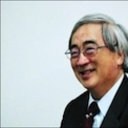Serine/threonine kinase AKT is frequently activated in human bile duct cancer and is associated with increased radioresistance.
Nøgleord
Abstrakt
The prognosis for patients with bile duct cancer (BDC) remains poor. Although BDC cells are essentially radioresistant, recent reports have suggested that radiation therapy, in addition to its palliative role in the management of BDC, may improve patient survival. A better understanding of the mechanisms that lead to cellular radioresistance may assist in the development of more effective BDC therapies based on radiotherapy in combination with radiosensitizing agents. The serine/threonine kinase AKT/protein kinase B, a downstream effector of phosphatidylinositol 3'-kinase, is a well-characterized kinase that is known to play a critical role in antiapoptotic signaling pathways. In this investigation, we sought to clarify the role of AKT signaling in the radioresistance in BDC cells. First, to examine whether activated AKT is expressed in BDCs, tumor specimens were obtained from 19 consecutive BDC cases. Immunohistochemical staining using an anti-phosphorylated-AKT antibody showed that phosphorylated (activated) AKT was expressed in cancer cells but not in neighboring normal mucosa in 16 cases (84.2%). Next, to evaluate the role of AKT activation in the regulation of BDC cell radiosensitivity, clonogenic assays were performed using the phosphatidylinositol 3'-kinase inhibitor LY294002 with and without irradiation. LY294002 inhibited AKT activation in BDC cells and, on irradiation, decreased clonogenic survival in a radiation dose-dependent manner. Only a small decrease in cell viability was observed in cells exposed to LY294002. Expression of constitutively active AKT in BDC cells resulted in decreased radiosensitivity, whereas a dominant-negative AKT increased radiosensitivity. Furthermore, constitutively active AKT also inhibited radiation-induced apoptosis. Collectively, these results indicate that activated AKT in BDC cells is associated with radioresistance and suggest that pharmacological or genetic modulation of AKT activity may have important therapeutic implications in BDC patients treated with radiation.




